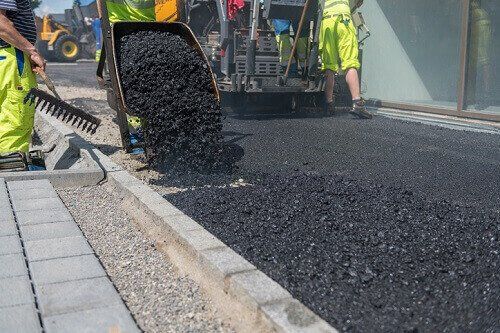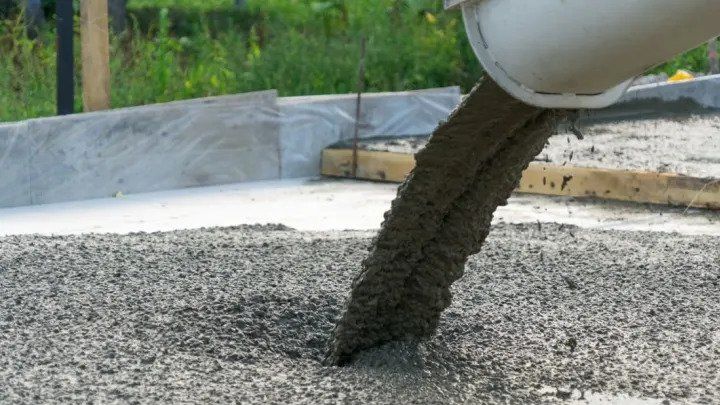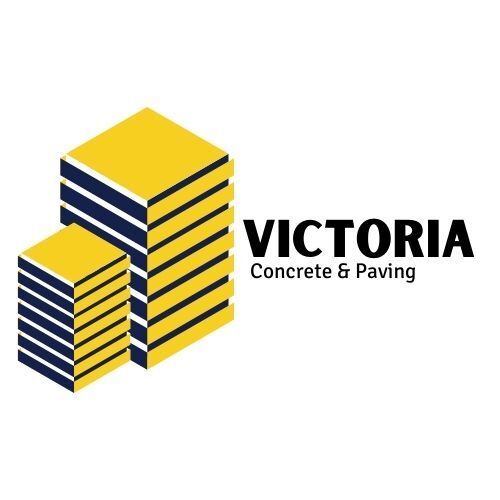Driveway Paving
In terms of cost and aesthetics, asphalt and concrete driveways are both viable options for residential driveway paving. Several variables should be considered before deciding which one to use in your home. Concrete driveway paving, for example, survives longer than asphalt driveways. They are, however, more expensive to build. In addition, while concrete holds up well in warm temperatures, it is susceptible to fracture in the winter. Choosing between asphalt and concrete is a challenging task.
Benefits of Using Concrete or Asphalt
for Driveway Paving
Choosing between concrete or asphalt residential driveway paving can be a tough choice. As one of the leading concrete and paving companies in Victoria, B.C., Victoria Concrete & Paving is here to help you make the decision easier.
We will discuss the benefits of both concrete and asphalt residential paving so that you can have an informed choice on which is best for your property. So, once you’ve decided which way to go, and you start to ask yourself if there are any “paving contractors near me,” know that we are here to give you our full attention and work on your driveway paving needs.
Get a quote
Contact Us
Differences Between Asphalt and Concrete
Before we discuss the advantages of both concrete and asphalt, let's talk about what they are essentially made from.

Asphalt
Asphalt concrete, or simply asphalt, is a composite material extensively used to pave roadways, parking facilities, airports, and embankment dam cores. For most of the first half of the twentieth century, asphalts have been utilized to construct new roads. Mineral aggregate is bonded with asphalt and laid in layers before compacting.
A bituminous mixture, asphalt asphaltic concrete and bituminous asphalt are terminologies typically used only in construction and engineering documentation. These terms specify concrete as any composite material comprised of mineral aggregate attached with a binder. AC refers to asphalt concrete, but it can also stand for asphalt cement or asphalt concrete, which refers to the liquid asphalt element of the composites.

Concrete
Concrete is a composite material formed by combining binding materials such as cement or lime with aggregates such as gravel, sand, water, and other ingredients in precise ratios. The mixing proportions determine the quality and strength of the mixture.
Concrete is an essential building material. A hardened mass is formed when the cement and water react with each other to form a hardened mass when they are mixed.
Now that you have learned about what makes concrete and asphalt. let's now learn about the benefits of using them in your driveway paving.
Advantages of Using Asphalt Driveway Paving
Whether you're planning to setup a new driveway or replace an existing one, asphalt is typically always considered. An adequately laid asphalt driveway will operate similarly to concrete with the added benefit of being more durable but at a far lesser cost. Compared to concrete, asphalt requires regular sealing to maintain it properly, whereas asphalt is practically maintenance-free.
On the other hand, asphalt is more flexible and less vulnerable to cracking than concrete since it is derived from petroleum. In the summer, asphalt can become extremely hot. Consider these and other variables when determining whether asphalt is a smart choice for your driveway.
Here are other advantages of an asphalt driveway that might help you decide:
Advantages of Using Concrete Driveway Paving
For a good reason, concrete is a popular option for commercial and residential paving. Concrete slabs are incredibly sturdy and long-lasting, and they demand very little upkeep. Concrete is a relatively reasonable value for vast paving sections because of its strength and endurance. While concrete prices are significantly higher than asphalt as a driveway pavement, it is considerably cheaper than a cobblestone or a brick driveway.
Although plain concrete can have a pretty dreary appearance, concrete can be coloured and stamped to produce a distinctive and attractive surface. Additionally, listed below are more advantages of using concrete for your driveway paving.
Easy Maintenance
While many homeowners think of concrete driveways as low-maintenance, keeping them clean and sealed to preserve their lifespan is essential. You can use a water jet or pressured water and a rigid brush to clean your driveway paving. On the other hand, a concrete sealer can provide an additional layer of defence for your concrete surface. Applying a concrete sealant to your driveway pavement only needs to be done once a year.
Applying a transparent concrete sealant to the surface of your driveway minimizes the absorption of water and moisture. As a bonus, it protects surfaces from de-icing chemicals, which can otherwise cause harm to the concrete. It is always a wise option to seal your concrete driveway pavement in the fall to be ready for the winter. This ensures that the concrete pavement will withstand the brutal winter weather and road salts.
Design Versatility
As some individuals may believe, concrete driveways are confined to a smooth finish and a grey slab. If you want to give your driveway paving a unique look, you can stain it using a choice of colourful concrete stains. Additionally, you also have various options to have your driveway in different textures. In this case, get in touch with us at Victoria Concrete & Paving, and we will be able to show you all of our design templates for various types of driveways and walkways. You can pick a design from their selection and receive an estimate from their firm.
Better Resale Value
Do you have any plan on putting your house on the market soon? If that's the case, try putting yourself in the position of a potential buyer for a moment. Is it more important that your home has an asphalt or concrete driveway? If you decide to sell your house in the future, you may be able to recoup some of the cost of installing a concrete driveway.
You should be aware that the majority of potential buyers prefer concrete driveways. As a result, some purchasers may be willing to buy your property at your desired price.
Knowing the advantages of each material, we hope we were able to help make you decide which type of driveway paving you would install on your property.
FAQS
Here are answers to some common questions.
Talk to us today!
We keep doing beautiful Concrete and Pavements across Victoria and its surrounding cities...
Victoria, Saanich, Esquimalt, View Royal, Oak Bay, Sidney, Sooke, and Duncan
